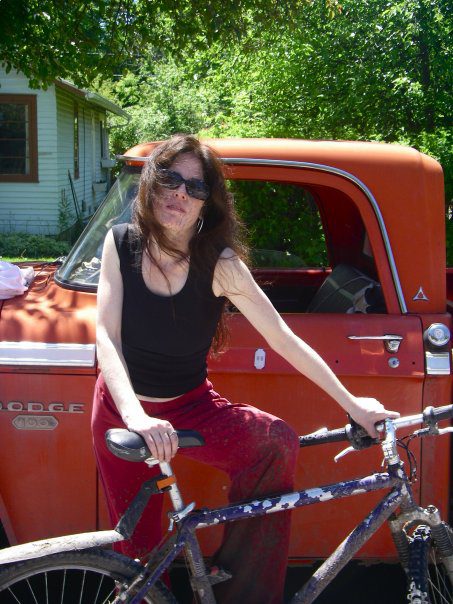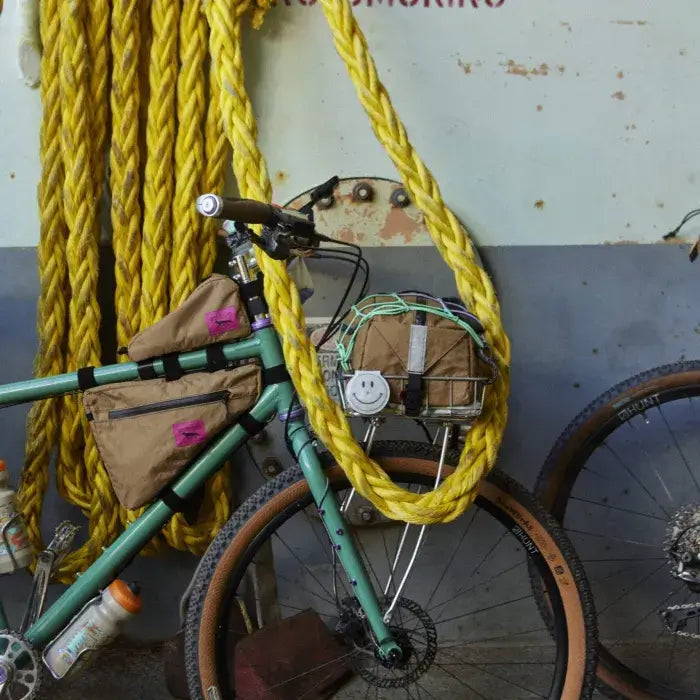Tough & Tender 7: Bismarck Bike Girls - Swift Industries
Share

My sister Megan, daredevil, girl Evel Knievel, and the owner of the neighborhood’s largest and meanest G.I. Joe collection, was out riding my new bike without my permission. Again.
She was riding my new, blue, Raleigh 10-speed, the one that I had just bought with money saved from my paper route. She took it again even though I specifically told her not to.
She was lucky. It was rare for me to be off-bike in those days.
My best friend, Betsy Addison and I had spokes and rubber for limbs. Girls in our town rode bikes more than boys. Boys rode bikes to things: little league practice, Boy Scout meetings, basketball camp. Since there was nothing like that for girls in the summer, we were always on the ride. We rode just to ride—pedaling to nowhere, and doing crazy things on bikes. I can hardly credit the memories of it, but Betsy and I could ride double on my old Schwinn Hollywood with one of us standing upright, balanced, on the two-toned seat. And not just rolling along, girl, but going fast.
It’s true.
Nobody in my North Dakota neighborhood was without a bike, even if that meant riding an old thing with solid rubber tires and no speed. Some people owned their own bike, but mostly families owned collections of bicycles: a Sting-Ray with sissy bar, an old Schwinn with plastic basket and handle ribbons, the rare ten-speed, patch-work bikes made out of the parts of dead bikes. Heck, some of the bikes we rode had weld-work done to them and came apart if you tried to jump a curb.
Collective family bike ownership seemed the norm then, with the older kids having first dibs on the better bikes, but not always. Birth order didn’t guarantee you the best bike. Sometimes you’d see Tim Addison riding a shortie around town. He was 18.
The Raleigh was mine, I thought, since I saved for almost a year to buy it. Its ramhorn handlebars, men’s crossbar, and obviously-not-from-North Dakota aesthetics (checkerboard decals and a terribly British brand script) meant that I leveled up in the local bike world.
Then my sister took it, and raspberried three feet of skin in an epic encounter with a car on Washington Street hill, the biggest elevation in the area. My response to the news was to howl at my Mother, “What about my biiiiike? Did she wreck it?”
“It’s your sister that matters,” my Mother said. “Not your bike.”
My sister’s scars are dear to me, and the bike was never really mine. I might have held on to it for several weeks, but then it would have gone into the family pool, and others would have been racing it around town.
I went back to riding the Schwinn my four sisters shared.
It would have taken me and Betsy some time to learn how to balance on the Raleigh’s slim racer’s seat, anyhow.
–By Katie Kane, 52, Missoula, MT
_____________________________________________________________
Swift Industries’ Tough & Tender Project is an annual LITERARY AND PHOTOGRAPHIC PROJECT TO CELEBRATE WOMEN’S EXPERIENCE OF THE BICYCLE because Women’s experience of cycling is not celebrated enough in bicycle communities. Cycling is a male dominated activity and industry, and it’s our experience as women and female-bodied individuals that cycling empowers and inspires us in ways which are not portrayed by mainstream bicycle culture. It’s time for something different!

